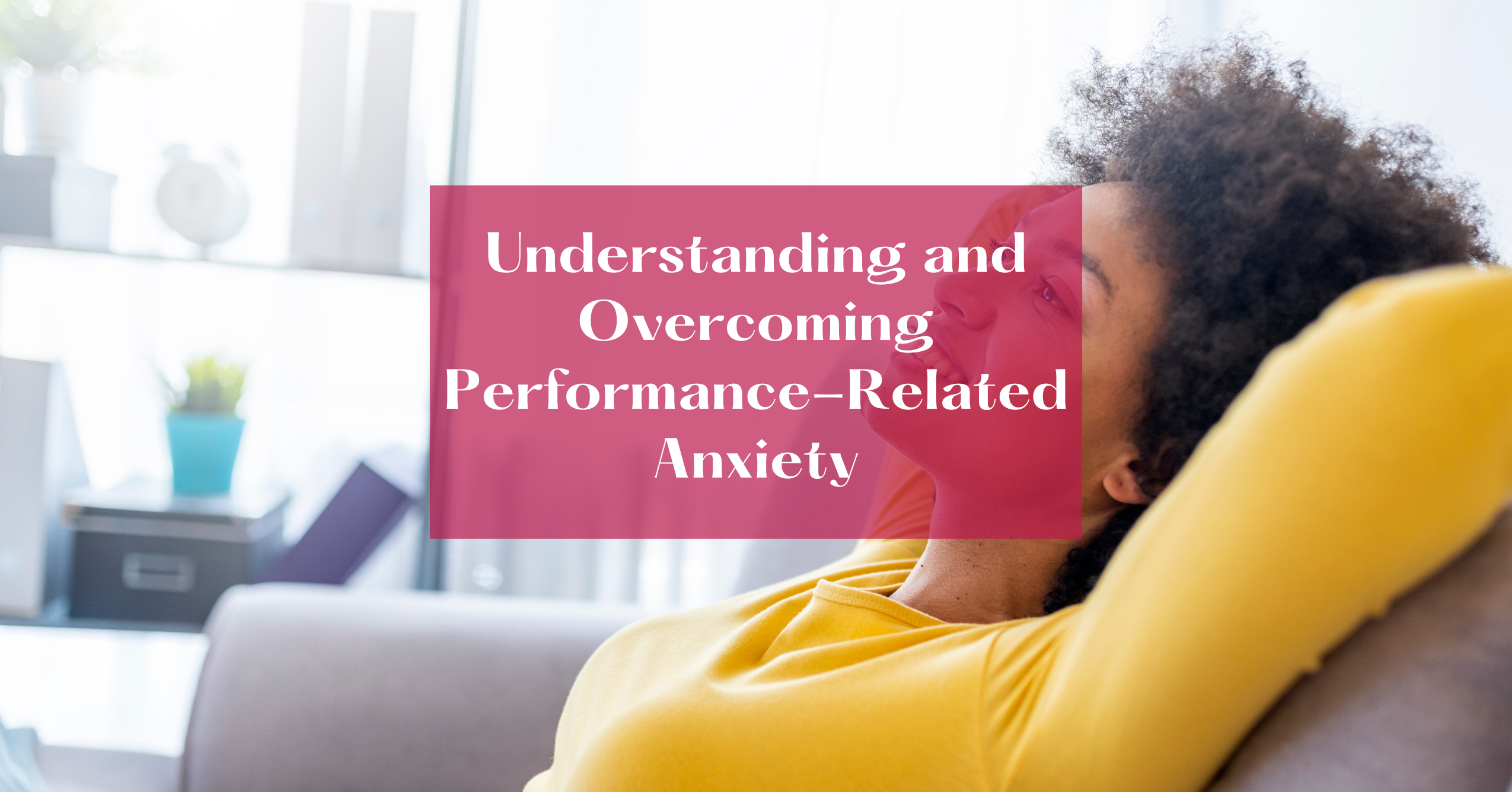Performance-related anxiety is a common experience for many individuals, manifesting in various situations such as public speaking, sports competitions, academic exams, or even workplace presentations. This form of anxiety can be overwhelming, affecting both mental and physical well-being. Understanding the root causes and employing effective strategies can help manage and overcome this anxiety.
What is Performance-Related Anxiety?
Performance-related anxiety, often referred to as stage fright or performance anxiety, is the fear or nervousness that arises when one is expected to perform in front of an audience or under scrutiny. It can lead to physical symptoms such as sweating, shaking, increased heart rate, and nausea, as well as psychological symptoms like self-doubt, fear of failure, and negative self-talk.
Common Causes
- Fear of Judgment: Worrying about others' opinions and the possibility of negative feedback.
- Perfectionism: Setting excessively high standards and fearing that one might not meet them.
- Lack of Preparation: Feeling unprepared or underprepared for the task at hand.
- Past Experiences: Negative past experiences can create a lasting impact, leading to fear of repeating the same mistakes.
Strategies to Overcome Performance-Related Anxiety
- Preparation is Key:
- Thoroughly prepare for the performance. This might involve practicing a speech multiple times, rehearsing a piece of music, or simulating exam conditions. The more familiar you are with the material, the more confident you'll feel.
- Positive Visualization:
- Visualize a successful performance. Imagine yourself excelling and receiving positive feedback. This mental rehearsal can build confidence and reduce anxiety.
- Mindfulness and Relaxation Techniques:
- Practice mindfulness meditation, deep breathing exercises, or progressive muscle relaxation. These techniques can help calm your mind and reduce physical symptoms of anxiety.
- Challenge Negative Thoughts:
- Identify and challenge negative thoughts. Replace them with positive affirmations and realistic self-assessments. For example, instead of thinking, "I will fail," tell yourself, "I am prepared and capable."
- Gradual Exposure:
- Gradually expose yourself to the feared situation. Start with smaller, less intimidating performances and gradually work your way up to more challenging ones. This helps build confidence over time.
- Seek Support:
- Talk to friends, family, or a therapist about your anxiety. They can offer support, encouragement, and practical advice.
- Focus on the Process, Not the Outcome:
- Shift your focus from the end result to the process of performing. Enjoy the act of performing itself rather than fixating on the potential outcome.
- Healthy Lifestyle:
- Maintain a healthy lifestyle with regular exercise, balanced nutrition, and adequate sleep. Physical well-being can significantly impact mental health.
- Professional Help:
- If anxiety is severe and persistent, consider seeking help from a mental health professional. Eye Movement Desensitization and Reprocessing (EMDR), Cognitive-behavioral therapy (CBT) and other therapeutic approaches can be highly effective in managing performance-related anxiety.
Conclusion
Performance-related anxiety is a challenge that many people face, but it is manageable with the right strategies and support. By understanding its causes and implementing practical techniques, individuals can build confidence, reduce anxiety, and perform at their best. Remember, overcoming performance anxiety is a journey, and each step forward is a victory in itself!

